Follow the Aroma of Coffee to a Different Baoshan
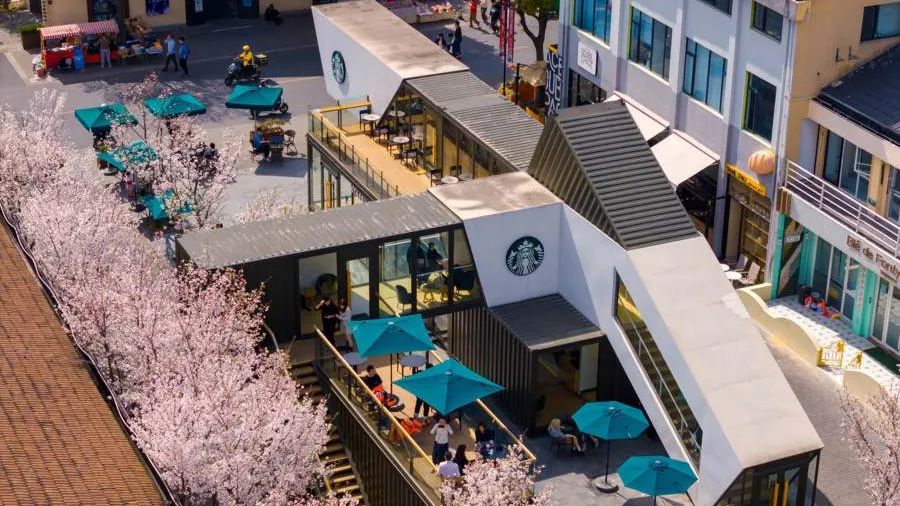
In Shanghai, coffee—whether from international brands or local roasters—is an integral part of life, found everywhere from science parks to the countryside. Coffee embodies both historical memory and Shanghai-style culture while driving future innovation. A unique cup of coffee allows us to savor the diversity and splendor of the city...
But in North Shanghai, can we find good coffee and a cozy “third place” outside our homes and workplaces?
Over the years, I have visited many cafes in Baoshan. Although they are not in the downtown area and lack prominent backgrounds and influence, they maintain their position and operate with dedication. Some focus on boutique coffee, investing heavily in technology and taste, some emerge from industrial relics, exploring the interplay between the “new” and the “old”, while others expand their reach, bringing vitality and vibrancy to the edge of the city...
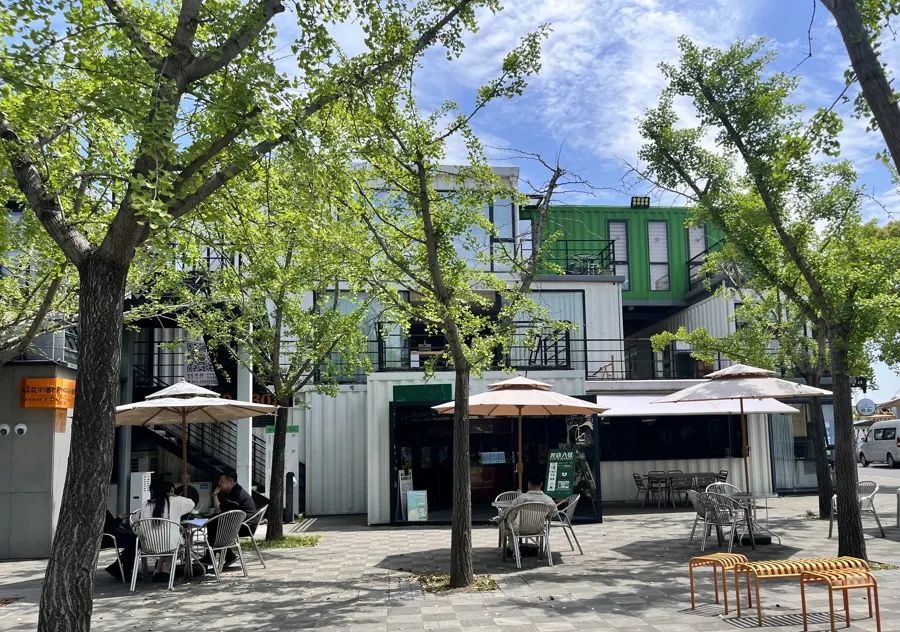
Coffee space in front of the Arts Bridge Space bookshop in Wisdom Bay Creative Industry Park
In the past two years, more and more cafes have opened around Meilan Lake in Luodian, causing me some concern about Chen’s business.
Chen’s cafe, located in a community shopping mall next to Baoshan Temple, is small and off the main street. It features boutique hand-brewed coffee, which is not cheap. “I’m not in the business of catering to the masses of tourists. Good coffee will attract customers no matter how hidden the location,” he was quite confident.
Indeed, those who frequent Chen’s cafe are all discerning coffee lovers. Chen can spend an entire afternoon discussing with customers how to roast and extract beans and which kind of gooseneck kettle and coffee cup is best. Coffee enthusiasts outside Shanghai have even made special trips to his store, ordering every hand-brewed coffee on the menu. Many restaurant review bloggers and business executives often drive 20 or 30 kilometers from downtown just to taste the flavor of the new beans. “Just two days ago, we launched two Ethiopian champion washed and honey-processed coffee beans. Several groups of people rushed over as soon as they saw the posts from restaurant review bloggers on Xiaohongshu,” Chen stated.
I once asked Chen why he didn’t open his store downtown. He said that Luodian is his home, and the store must be opened at home.
Ten years ago, Chen, who enjoys motorcycling and outdoor sports, started his business at Meilan Lake. He was troubled by the deserted homeland for a time, as young people went to work in the urban area and there was no place for leisure around on weekends.
Fortunately, in the past few years, the popularity of the neighborhood has begun to flourish. A number of biopharmaceutical companies have settled in the North Shanghai Biomedical Industrial Park. The office buildings in Meilan Lake MAX Science and Technology Park have seen companies moving in. CIMC-Gemdale Meilan City, close to the Meilan Lake Station on Metro Line 7, has completed its exterior decoration and is attracting investment.
The “sleeper town” is waking up, and Chen, as a resident and entrepreneur, is very excited, “It is a good thing that there are more cafes around Meilan Lake. The formation of a coffee cluster will give consumers more choices and attract more talents,” he said.
The Wisdom Bay industrial park along the Wenzao River, ten kilometers southeast of Meilan Lake, is also filled with cafes. This former container yard and wharf area has been transformed into a science and technology park, with well-known coffee brands taking prime locations on both sides of the main road. Walking down the alleys, several independent cafes can also be found.
With nearly 600 enterprises and 5,000 to 6,000 people working in the park, it is indeed a bustling area. But can they really support so many cafes?
“Our store is Starbucks’s first store made of cargo containers in the Chinese mainland, and its performance has been robust since it opened in 2020. Seven or eight o’clock in the morning on weekdays is a small business peak, with many white-collar workers buying a cup of coffee to take away. In the afternoon, when the sun is good, many tourists and neighborhood residents come to take pictures, occupying all 28 outdoor seats. Last spring, our performance achieved a record high,” said Yang, the manager of the Starbucks Wisdom Bay store, with pride.
“But there weren’t so many cafes two years ago. Are you really under no pressure with so many cafes opening?” I expressed my concern. Yang asked in reply, “Have you ever been to the park on weekends and holidays, especially on days when music festivals are held?”
And I had. It was a rainy night, and a huge crowd of people and cars filled every space at the Wisdom Bay trunk market and music festival. “Since the park started holding free music festivals and markets, we have been very busy at night. Many customers enjoy a cup of iced espresso, saying it goes especially well with the gentle evening breeze,” Yang explained.
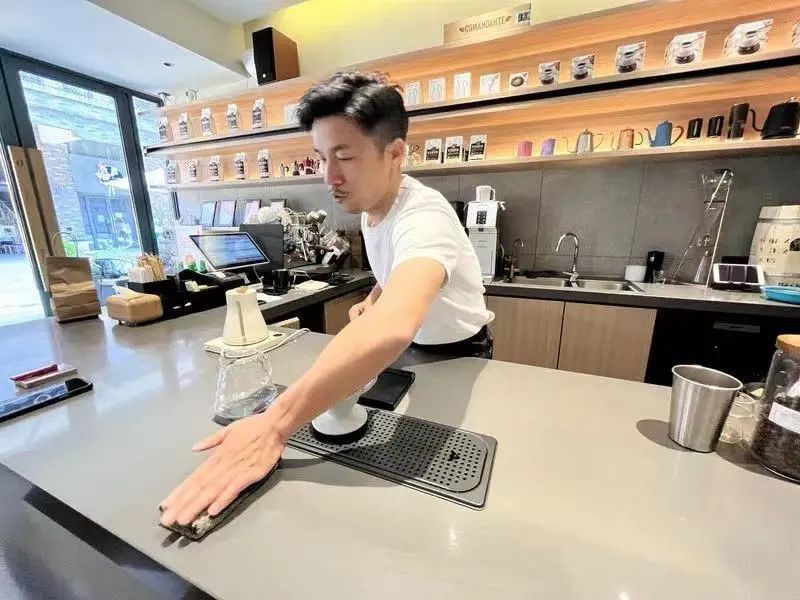
Chen, who is busy in the store
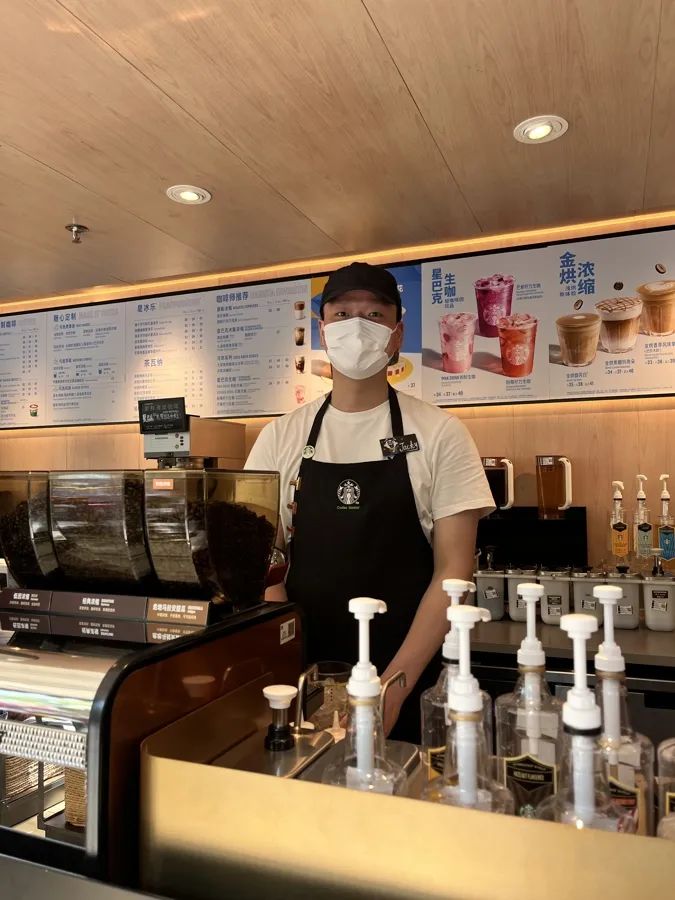
Yang, the proud store manager
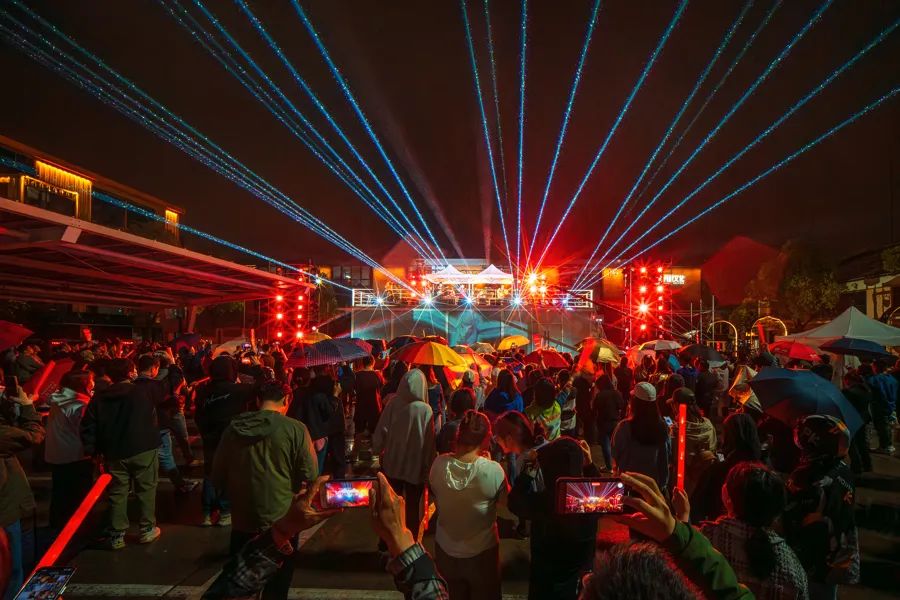
Trunk market music festival
One year, on the first working day after the Spring Festival holiday, I accompanied the leaders of Baoshan District on a visit to an industrial park outside the suburban ring. In addition to inquiring about investment attraction, the district leader also asked about the supporting facilities and whether the coffee brands favored by young talents in tech enterprises have been introduced to the park.
The leader said bluntly and sincerely, “In the suburbs of Shanghai, the difficulty of introducing a Starbucks store is no less than that of attracting a high-tech enterprise. When attracting business, no matter how good the park claims to be, high-tech companies will definitely investigate the surrounding facilities on the spot, which will influence their decision to settle. Similarly, catering brands such as coffee shops have their own considerations. It is much more difficult to introduce well-known coffee brands in the suburbs than in urban areas.”
According to Alibaba’s data, habitual coffee consumers in China’s first- and second-tier cities consume 260-320 cups per year on average. In Shanghai, industrial parks and office buildings without coffee businesses are embarrassed to claim they provide a “quality office environment”.
Last year, I visited the “northernmost” Starbucks store in Shanghai (excluding Chongming). It is one of the rare Starbucks park stores in Shanghai, located in the Shanghai Future Office Park in the northern suburbs of Baoshan. The park’s manager described the process of introducing Starbucks to the park as having “experienced numerous setbacks”. He believes that the eventual success relied on sincerity on the one hand, and the brand recognizing the park’s development potential on the other.
On the opening day, there was a long line of people, and everyone was very happy. Not long ago, I made a return visit and the park manager reported that the store was “as popular as ever”. “Not only are there business people in the park negotiating in Starbucks, but there are also people from surrounding neighborhoods driving their clients and friends to the store.”
He added that in addition to cafes, there are McDonald’s, FamilyMart, Fly Elephant Pizza, and Jinguitang Pharmacy (a designated retail pharmacy covered by the medical insurance system), a barbershop, and a bakery in the park, demonstrating improved living facilities. “With these supporting facilities, our investment promotion personnel are more confident when showing companies around.” Recently, intelligent manufacturing enterprises such as Shanghai Shiwei Baishan Technology Development Co., Ltd. (a catering robot manufacturer), Fujian Fuyi Tianlong Intelligent Technology Co., Ltd. (a spinning robot manufacturer), Shanghai Haofuman Electrical Equipment Co., Ltd. (a smart cabinet supplier), Hehao Technology, and Tianfeng Industrial have successively settled in Shanghai Future Office Park.
Concerned, I explored the coffee market in other parks in Baoshan.
At Baoshan High-Tech Industrial Park, more than ten new projects were signed from the end of last year to March this year. An increasing number of biopharmaceutical and intelligent manufacturing enterprises have settled in the park. Many employees from these companies often visit Starbucks for coffee and have become acquainted with the attendants.
In the Nanda Digital Smart Center of Nanda Digital City, employees from Chancec frequent Manner Coffee on the first floor of the office building. “When we first visited, the convenient transportation caught our attention. The building has a coffee shop, a convenience store, and a cafeteria. Additionally, rental costs in the surrounding area are lower compared to the city center. We were immediately intrigued,” said the head of the enterprise.
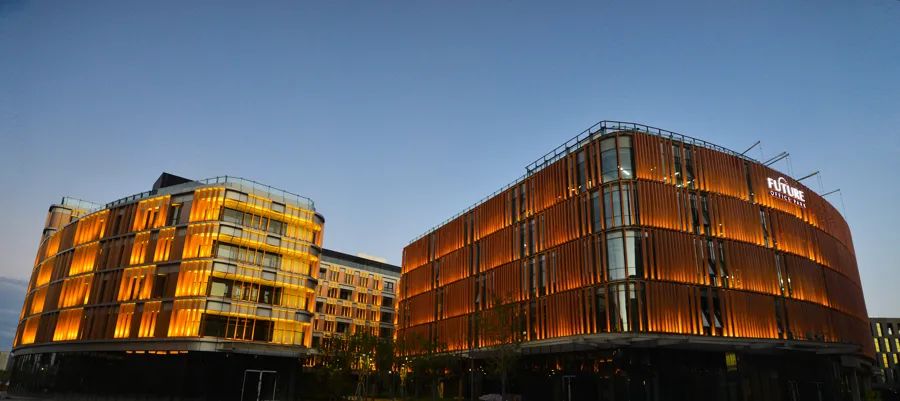
Night view of Shanghai Future Office Park
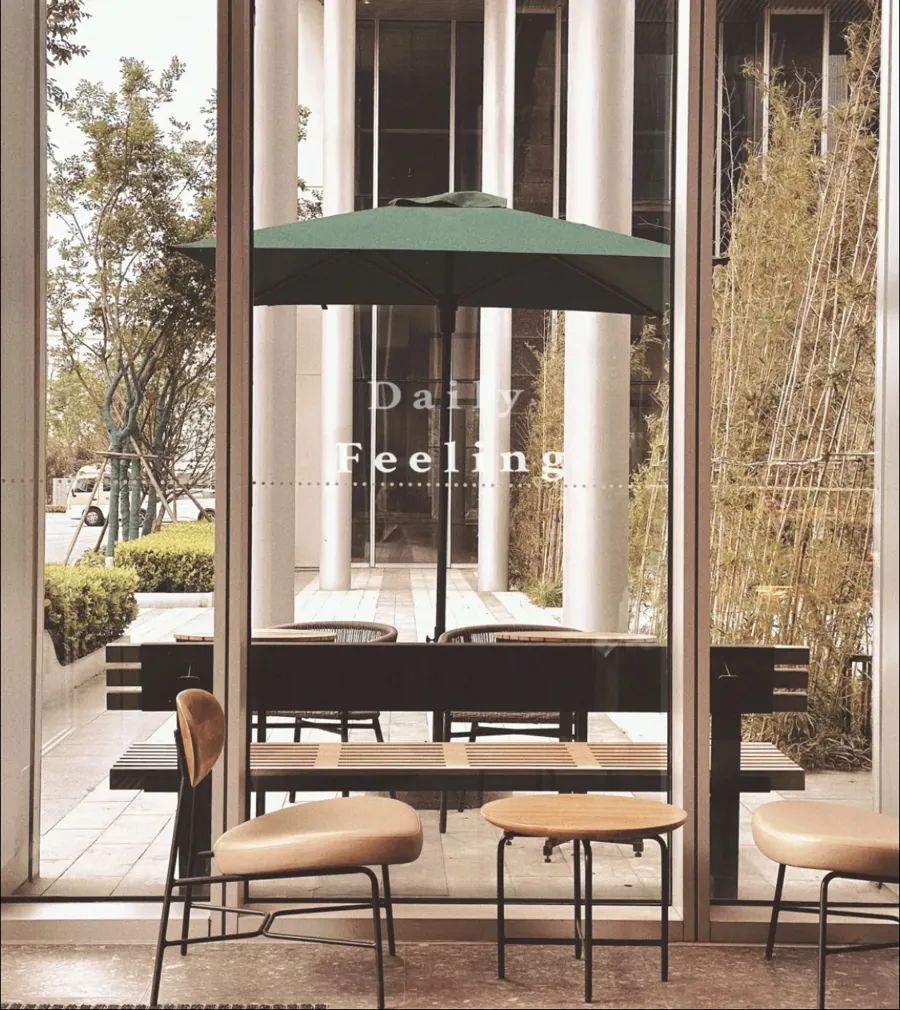
View of the Starbucks store in Lingang Chenggong Technology Oasis
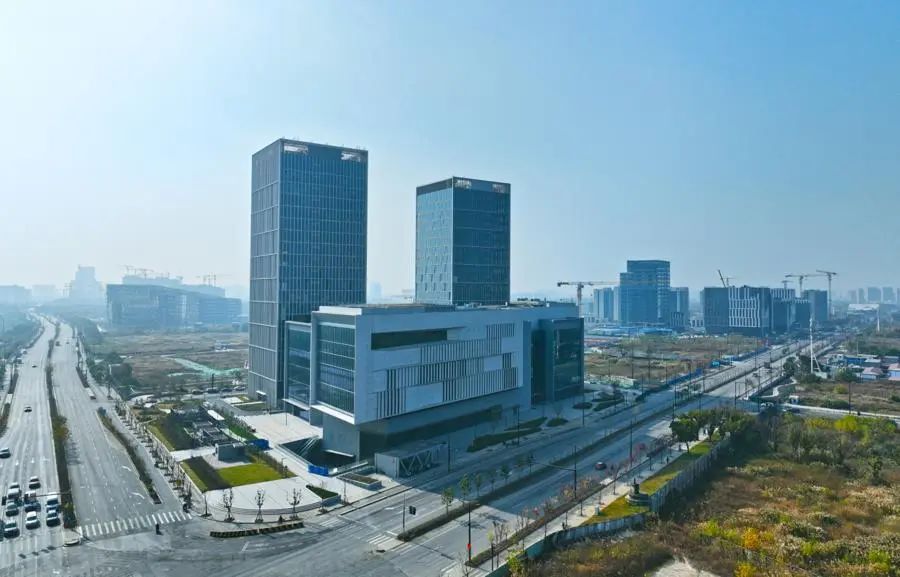
Twin towers of Nanda Digital Smart Center
Many coffee shop owners and brand leaders, whether Baoshan natives or new Shanghainese, told me, “Baoshan has really changed these years and has given us many surprises.” Regular news watchers often add, “Baoshan’s northern transformation has a promising future,” a phrase frequently seen in news reports.
I’m sure they genuinely feel this way. However, running a cafe is still a market-driven activity, subject to ups and downs like any other industry.
The person in charge of an industrial park in Baoshan expressed concern, saying, “The cafes in the park are open, but the popularity has not met expectations.” While the park’s investment attraction has been good over the past year or two, fluctuations in the market environment have slowed the pace of enterprise settlement, and there are insufficient consumer groups in the surrounding areas. Attracting young people to the region has become a challenge.
The person in charge of a cultural space mentioned that while the coffee in their study area is selling well, attendance at reading and music events has declined this year. Indeed, people rarely travel all the way from downtown to attend a suburban event unless it’s exceptionally attractive.
In addition to the industrial parks, Baoshan also has the countryside. Coffee has become quite fashionable there, with more cafes opening in recent years The person in charge of a B&B in Baoshan shared that not all village visitors are accustomed to drinking coffee and a cup of freshly brewed coffee priced at 18 yuan does not sell very well. “We hope that one day, B&B clusters will form in the village and town to attract more urban families.”
A coffee shop owner, who told me enthusiastically two years ago about plans to open a branch in a village three kilometers away from his first shop, now seems uncertain. He had envisioned a camping-themed cafe next to two major regional roads, utilizing the lawn at the entrance and attracting customers with annual village festivals. However, when I inquired again recently, he looked embarrassed. Despite planning the interior design of the new store, he faced unresolved issues such as how to align the store with the village’s overall style, whether the lawn at the entrance could be utilized, and how to link the store to surrounding cultural tourism facilities to attract customers, all of which are crucial to determining whether the store can open and survive.
Following the aroma of coffee, I have come to know Baoshan more deeply. The lightness, tenderness, resilience, and determination of this old industrial base are all encapsulated in the fragrance of coffee.
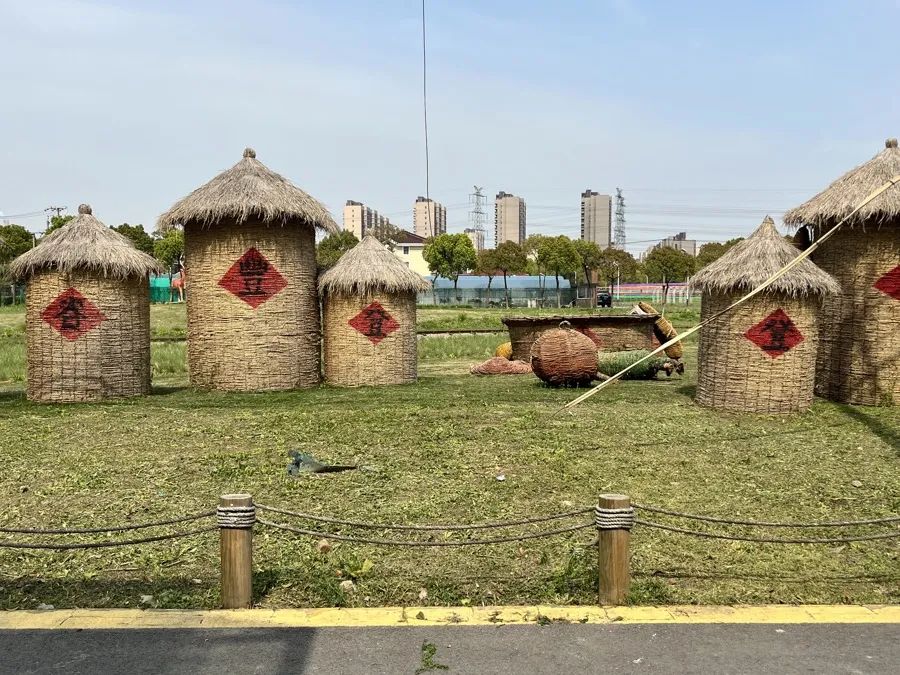
In the countryside of Baoshan, there are people making coffee, but are there enough consumers coming for it?
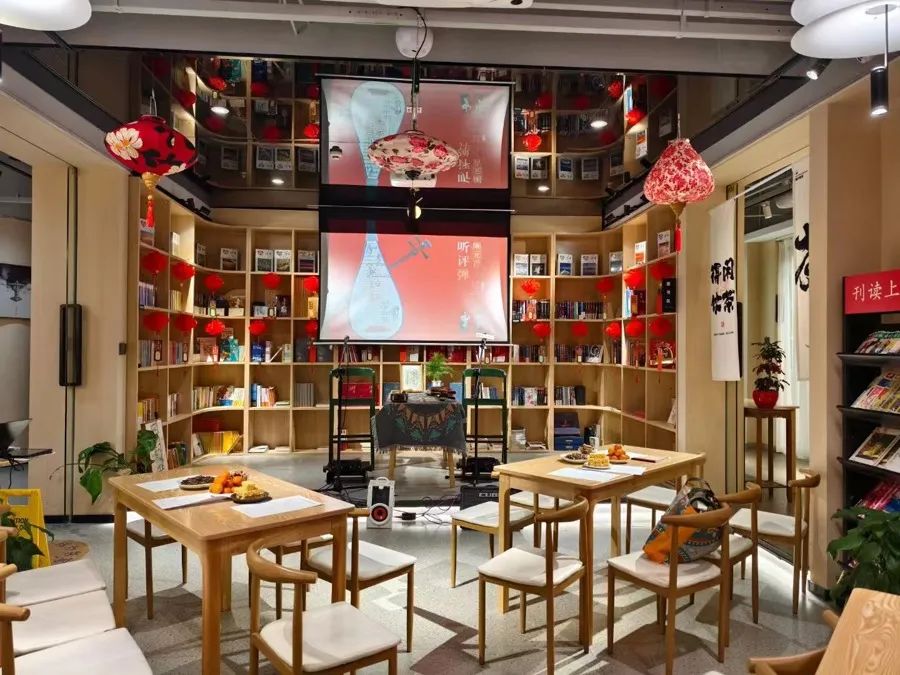
Can a cultural space with books and coffee continue to attract young people?

宝山汇APP

上海宝山微信

上海宝山微博